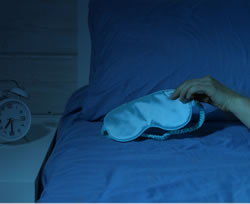 Queensland Health has issued a discussion paper on the dangers of not getting a decent sleep and what this might mean for late or shift workers.
Queensland Health has issued a discussion paper on the dangers of not getting a decent sleep and what this might mean for late or shift workers.
Under the title ‘How shift work affects your health’ the Department examines the ‘Internal Clock’, Biological Cycles’, and ‘Health Risks’, estimating that around 15-16 per cent of Australian workers report being shift workers.
“Shift workers can refer to people that work morning shifts, afternoon shifts, evening shifts, split shifts, rotating shifts, or irregular shifts,” it says.
“In the Queensland community they include health workers, aged care workers, emergency services workers, aviation and transport workers, hospitality workers, security industry workers, and others.
“Some do it because their job requires it. Some do it for financial benefit. Others find it fits in better with family and other commitments,” the Department says.
“Whatever the reason, there are real health consequences from doing shift work that you should know about.”
It says that a person’s ‘internal clock’ is a remarkable device located in the hypothalamus in the brain and which is set by sunlight.
“It works even when there is no day and night” it says.
“Research has shown that even if you are in a cave or kept in a room with no light, your internal clock can keep your body’s 24-hour cycles going for some time.”
“Many of the health problems that can arise from shift work are because it disrupts these ancient cycles.”
“It’s not just the disrupted cycles and sleep loss though, shift work can cut people off from social events and friends and family, leading to feelings of isolation.
“It can be harder for shift workers to eat healthily and get enough regular exercise, too.”
The discussion paper recommends that late night workers or shift workers try to eat well and get regular exercise.
“This can be challenging, but it’s not impossible,” it says.
“Taking your own meals to work can help you eat less canteen food or take away. If you use public transport you could try getting off the bus or train early and walking the last bit to work or home or find a nearby gym that is open 24 hours.”
It recommends late workers get a regular health check and let their GP know they’re shift worker.
“They can keep an eye on your health and, if necessary, test you for risk factors such as raised blood sugar levels,” it says.
The discussion paper can be accessed at Queensland Health at this PS News link.











